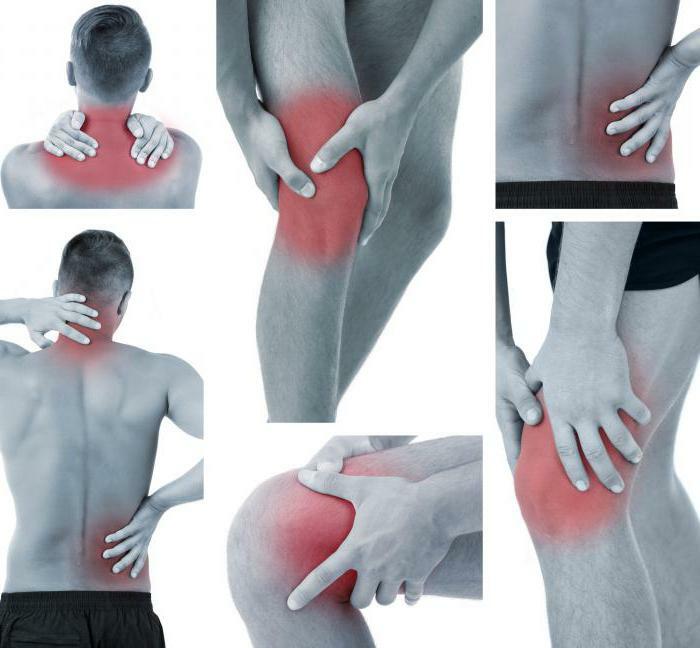Why "Ibuprofen"( tablets)?"Ibuprofen" - gel, ointment, suspension: instructions for use, testimonials."Ibuprofen"( syrup for children): instructions for use

Composition, packaging, description, forms of the drug
In what form is Ibuprofen produced? Instructions for use, reviews of specialists report that this drug is produced in various forms.
- Biconvex and round tablets are sold in cardboard packages of 20, 10 or 100 pieces. They have a smooth surface and white color. The active substance of this drug is ibuprofen.
- Coated tablets "Ibuprofen".From what these tablets, we will tell a little further. They consist of a small amount of an active element, thereby providing a prolonged action.
- Capsules. This form contains 300 mg of active substance. They dissolve very slowly.
- Suspension of Ibuprofen. A syrup for children comes on sale in a bottle with a measuring spoon. The suspension is a homogeneous yellow mass. It can have both orange and strawberry flavor.
- Suppositories "Ibuprofen".Instructions, reviews say that such candles are used rectally. They are sold in packages of 10 pieces.
- Granules. This form is intended for preparation of medicinal solution for oral administration. The finished product has a mint flavor, as well as a pleasant aroma.
- 5% ointment "Ibuprofen".The use of this tool allows you to get rid of the pain in the muscles and joints. The gel is used only externally.
- Solution for injection. It is produced in Germany and is sold in cardboard packs of 4 capsules. Enter the drug intravenously.
Features of the drug
Why is Ibuprofen used in medical practice? According to the instructions, this medication is a non-steroidal anti-inflammatory drug. It is able to have anti-inflammatory, antipyretic and analgesic effects. Specialists claim that this drug indiscriminately blocks COX2 and COX1.
The principle of ibuprofen is to slow the synthesis of prostaglandins, that is, mediators of inflammation, pain and hyperthermia.
Pharmacokinetics of the drug
What pharmacokinetic parameters are the tablets "Ibuprofen"?The use of oral forms of the drug provides high and rapid absorption from the digestive tract.
The highest concentration of ibuprofen in plasma is observed 120-240 minutes after its administration. The connection with plasma proteins is more than 90%, and the half-life is 2 hours.
The drug "Ibuprofen"( suspension and tablets) slowly penetrates into the joints. Its active substance is retained in the synovial tissue. This provides it with large concentrations of the active ingredient.
After absorption, approximately 60% of the inactive R form of the drug is transformed into an active S-form.
This medication is metabolized. It is excreted through the kidneys( unchanged), and also along with bile.
Indications for use of any form of the drug
Why "Ibuprofen" can be prescribed to patients? According to the instructions, this drug has the following indications for use:
- diseases of the spine and inflammatory joints( including ankylosing spondylitis, arthritis rheumatoid and gouty, osteoarthritis);
- febrile syndrome, which occurs against the background of infectious or catarrhal diseases;
- moderate pain of various origins( including headache, neuralgia, migraine, postoperative pain, toothache, myalgia, algodismenorea primary, post-traumatic pain).

What other purposes can Ibuprofen be used for? What do these tablets prescribe to patients? Doctors say that this drug is actively used for symptomatic therapy. It is good and fairly quickly reduces inflammation and pain( only at the time of use), but the progression of the disease does not affect.
Contraindications to the use of
Why "Ibuprofen" is used by patients, we described above. With regard to contraindications, they include the following conditions of the patient:
- erosive and ulcerative diseases of the digestive tract, especially in the stage of exacerbation( for example, ulcer of the 12-типерстной gut, stomach, Crohn's disease, ulcerative colitis nonspecific);
- a person's hypersensitivity to the ingredients that make up the drug;
- hypersensitivity of the patient to acid acetylsalicylic, as well as other NSAIDs, including anamnestic data on rhinitis, bronchial obstruction, hives after taking NSAIDs or acetylsalicylic acid;
- is an inflammatory bowel disease;
- incomplete or complete syndrome of intolerance to acetylsalicylic acid( manifested in the form of rhinosinusitis, urticaria, polyps in the nasal mucosa, bronchial asthma);
- period after aortocoronary bypass surgery;
- hemorrhagic diathesis, hemophilia and other disorders in blood coagulation( eg, hypocoagulation);
- hepatic insufficiency expressed, various liver diseases;
- intracranial hemorrhage, gastrointestinal bleeding;
- renal failure expressed, confirmed hyperkalemia;
- progressive kidney disease.
What other contraindications are available for the drug Ibuprofen? Syrup for children is not recommended to give babies up to 3 months, and other forms of medication - up to 6 years. Also, this medicine should not be used during pregnancy. 
Cautious reception of
When should I prescribe with special care the medicine "Ibuprofen"?The use( reviews about this tool will be presented later) of this drug in the elderly, as well as people with heart failure, hypertension arterial and ischemic heart disease should be strictly controlled by a doctor.
Also with special care this medication is prescribed for cerebrovascular diseases, dyslipidemia, diabetes, arterial diseases( peripheral), smoking, enteritis, regular alcohol consumption, liver cirrhosis, gastritis, nephrotic syndrome, hyperbilirubinemia, colitis, blood diseases of unknown origin and duringbreastfeeding.
Methods of application of the drug
The methods of application of this preparation depend on its forms of release.
- Syrup.
In what dosage is Ibuprofen shown for children? Instructions for use say that, with respect to tablets, the syrup acts much faster. Before using this form, the bottle should be shaken thoroughly. The dosage of this medication should be determined only by the pediatrician, depending on the condition of the patient.
- Candles.
Suppositories "Ibuprofen" are created specially for babies. They are used rectally and start acting after 30 minutes. With a fever or pain syndrome, a single dose of this medication is 5-10 mg per 1 kg of the child's weight. Apply candles preferably at intervals of 6-8 hours.
- Gel, ointment.
How should I use ibuprofen ointment? Gel, a strip of 1.5 cm, is applied to the lesion with light massaging movements. It should be charming to avoid getting the drug on mucous and open wounds. Otherwise, the medicine should be washed off immediately with warm water. 
- Tablets.
Do tablets "Ibuprofen" for children are harmful? Instruction for use states that this form of the drug is undesirable to give babies up to 6 years.
Take this medication in between meals. Usually it is prescribed in an amount of 5-10 mg per 1 kg of a person's weight three times a day. In this case, the daily dose should not be more than 20 mg per kg.
In rheumatoid arthritis, as well as other joint diseases, the drug is prescribed in an amount of 40 mg / kg( but not more).
Overdose Cases
When taking higher doses of the drug, the patient may develop the following symptoms: nausea, blockage, abdominal pain, drowsiness, vomiting, tinnitus, depression, metabolic acidosis, headache, acute renal failure, coma, bradycardia,arterial pressure, atrial fibrillation, respiratory arrest and tachycardia.
Treatment - urgent gastric lavage( within 60 minutes after an overdose), reception of activated charcoal, alkaline drink and forced diuresis.
Side effects of
Does the preparation "Ibuprofen" contribute to the occurrence of adverse reactions? Gel for external use never causes undesirable consequences. As for the oral forms of the drug, they can cause the following phenomena:
- abdominal pain, decreased appetite, nausea, mouth pain, vomiting, ulceration of the mucosa, heartburn, aphthous stomatitis, diarrhea, dryness or irritation of the oral mucosa, flatulence, pancreatitis,constipation;
- hepatitis;
- bronchospasm, shortness of breath
- hearing loss, noise or ringing in the ears, hearing loss;

- irritation and dry eyes, scotoma, toxic damage to the optic nerves, unclear dilation or blurred vision, edema of the eyelids and conjunctiva;
- insomnia, headache, hallucinations, dizziness, confusion, anxiety, depression, irritability and nervousness, drowsiness, psychomotor agitation, aseptic meningitis;
- tachycardia, heart failure, increased blood pressure;
- acute renal failure, polyuria, allergic nephritis, nephrotic syndrome, cystitis;
- skin rash, Quincke's edema, pruritus, exudative erythema multiforme anaphylactoid reactions, fever, anaphylactic shock, dyspnea, bronchospasm, Stevens-Johnson syndrome, eosinophilia, epidermal necrolysis toxic, allergic rhinitis;
- increased sweating;
- anemia, thrombocytopenic and thrombocytopenia purpura, leukopenia, agranulocytosis;
- ulceration of the mucosa of the gastrointestinal tract, bleeding.
It should also be noted that taking this medication can cause changes in the following laboratory parameters:
- serum creatinine concentration( increased);
- bleeding time( increases);
- creatinine clearance( decreases);
- serum glucose concentration( reduced);
- hemoglobin or hematocrit( may decrease);
- activity of liver transaminases( increases).
If these reactions occur, immediately stop taking the medication and consult a doctor.
Special recommendations
Treatment with medication "Ibuprofen" should be carried out in the minimum dose, which will show maximum therapeutic effectiveness. The course of therapy should be short.
If treatment is carried out for a long time, then it is required to control the work of the kidneys and liver, as well as the pattern of peripheral blood.
When signs of gastropathy appear, careful monitoring of the patient's condition is necessary. It should include esophagogastroduodenoscopy, as well as occult blood feces and a general blood test( to determine hemoglobin).
Drug Interaction
It is highly undesirable to combine the preparation "Ibuprofen" with acetylsalicylic acid and other NSAIDs. This is due to the fact that it can reduce the anti-inflammatory and antiplatelet effects of these drugs.
At simultaneous reception of a considered medicine with thrombolytic and anticoagulant preparations the risk of development of bleedings raises.
"Cefaperasone", "Cefamandol", valproic acid, "Cefotetan" and "Plikamycin" increase the likelihood of developing hypoprothrombinemia.
Drugs that block tubular secretion, reduce excretion and increase the plasma concentration of "Ibuprofen".
This drug worsens the effect of uricosuric drugs, increases the effects of indirect anticoagulants, fibrinolytics and antiaggregants.
Patient feedback about the drug
The drug "Ibuprofen" is very popular among patients. It is positioned as a highly effective anti-inflammatory drug, which has many forms of release.
According to patients' reviews, this medication is beginning to act very quickly. It removes even the most severe pains in the joints and muscles, and also eliminates headaches and inflammations of various origins.
The only drawback of this medication is the presence of a large number of side effects and contraindications. According to the patients' reviews, the drug "Ibuprofen" often causes stomach pain, nausea, dizziness and vomiting, and also causes ulcers and erosions in the gastrointestinal tract. Therefore, the use of this medication is recommended in minimal dosages, and also for a short time. Only in this way you can eliminate pain syndromes and at the same time not feel any side reactions.
